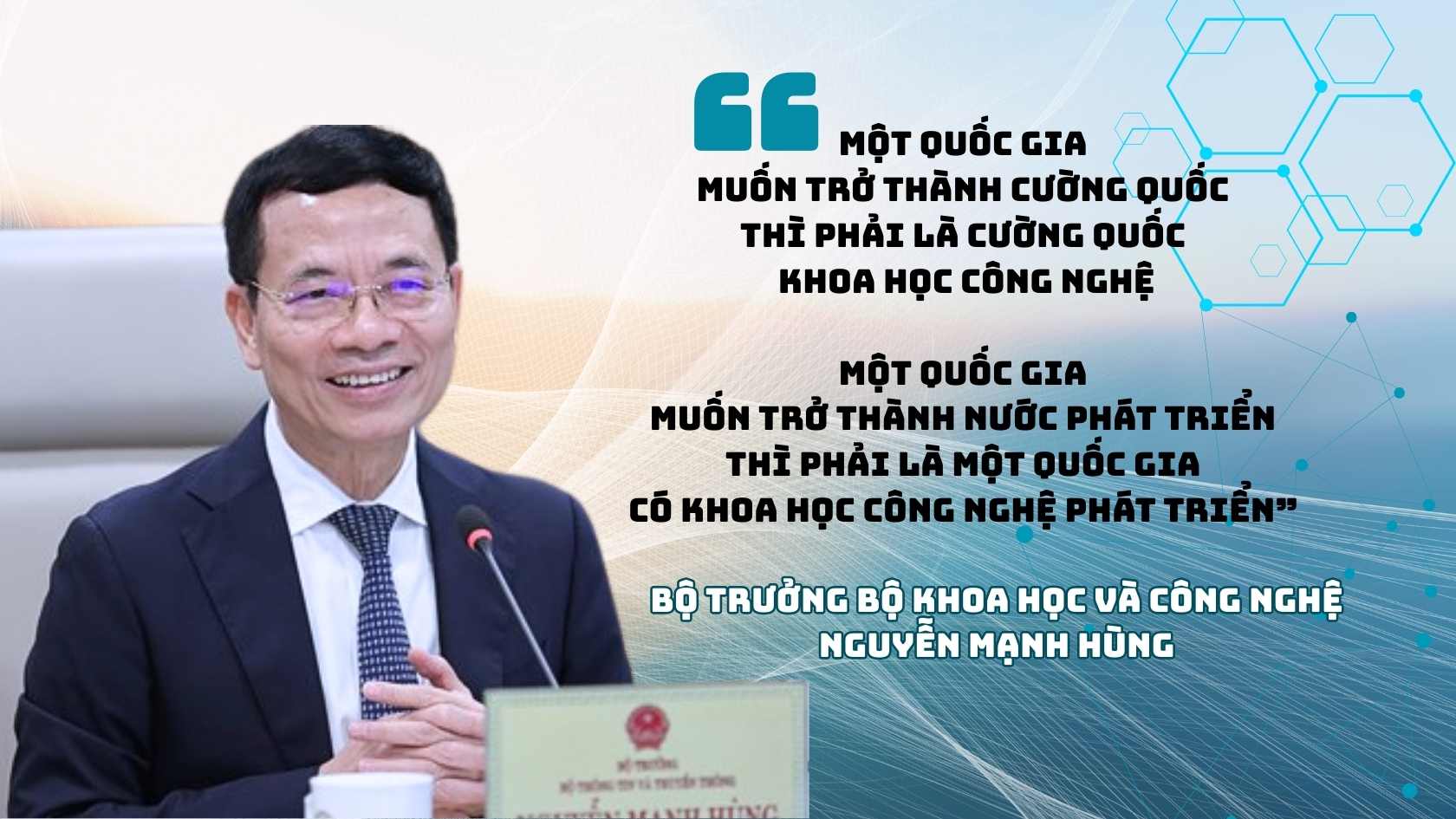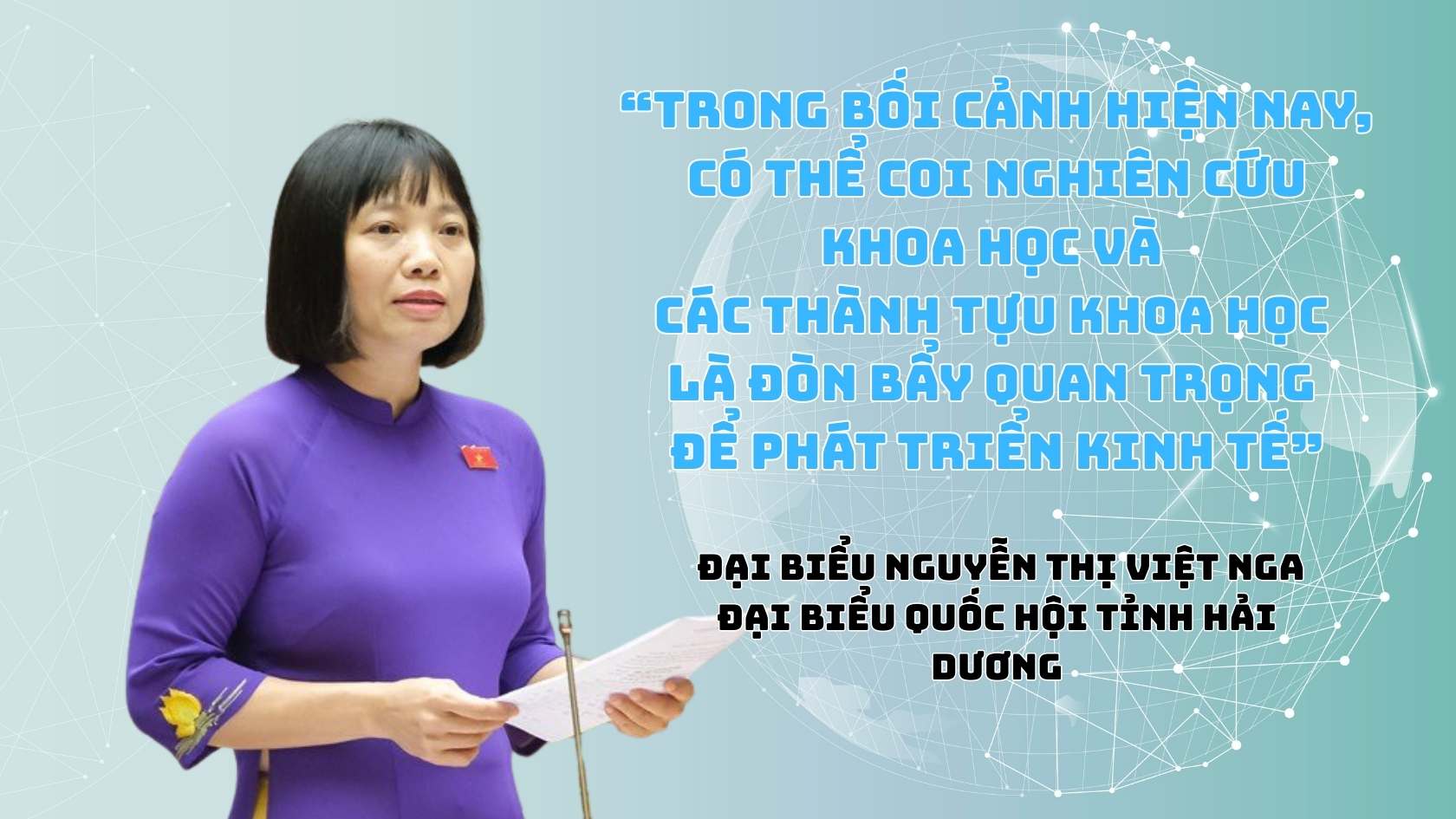
Compared to the 2013 Law on Science and Technology (KHCN), the Draft strongly adds the content of innovation, restructuring in the direction of streamlining, reducing administrative procedures, enhancing digital transformation and post-inspection. This amendment is considered revolutionary, creating a turning point in the management and development of the national KH, CN and DMST ecosystem.
Revolutionary innovations in the field of science and technology
Discussing the Draft Law on Science, Technology and Innovation (KH, CN and DMST), Minister Nguyen Manh Hung pointed out 10 strong, revolutionary innovations, promising to create a major change in the fields of KH, CN and DMST.
In particular, according to the Minister, this Draft Law has contributed to strongly innovating management thinking, from controlling input processes such as invoices and detailed documents, to managing outcome and output efficiency, accepting risks associated with risk management.
The draft Law strengthens autonomy for organizations, individuals and the subject in implementing tasks, managing the apparatus, and spending according to the spending contract mechanism, but comes with the requirement to improve accountability and transparency in resource use.
In addition, instead of only starting from scientific research and technology development to develop new products, this Draft Law on KH, CN and DMST focuses on taking the market, orienting products as a driving force, orienting technology development and identifying related research problems.
According to the minister, this draft helps create a complete and balanced ecosystem between entities such as businesses, research institutes, universities, the state, researchers, etc. In this ecosystem, the State plays a role in creating, through investing in the construction of key laboratories, shared laboratories, supporting information, standards, intellectual property, promulgating preferential financial mechanisms, supporting DMST enterprises. At the same time, it helps attract and treat domestic and foreign talents and experts.
Along with that, the Draft Law also moves from the pre-inspection model to post-inspection, sharply cutting administrative procedures and replacing them with digital management, thereby improving operational efficiency, transparency and long-term monitoring capability...
leverage for sustainable economic development
Sharing with Lao Dong, according to delegate Nguyen Thi Viet Nga - Member of the Provincial Party Committee, Deputy Head of the National Assembly Delegation of Hai Duong province, in the current context, scientific research and scientific achievements can be considered an important lever for economic development.

We are living in an era where the application of science and technology to all aspects of life has become clear and urgent. If we do not proactively research and create domestic scientific achievements but only rely on technology transfer from outside, we will face many difficulties in terms of time, effort and finance. We are even at risk of becoming a backward country.
When focusing on developing science and technology, it means that we are laying a solid foundation for economic development. Lessons from many countries around the world show that, despite not owning many natural resources, thanks to focusing on investing in science and technology, they have risen strongly" - Ms. Nga shared.
From practice and those lessons, National Assembly delegate Nguyen Thi Viet Nga commented that the National Assembly's consideration of the Draft Law on KH, CN and DMST is a necessary and correct step to promote the sustainable development of the country in the coming time.
Delegate Hoang Van Cuong - National Assembly Delegate of Hanoi City - assessed that accepting risky, adventure investments is a big step forward, helping organizations and businesses dare to research new things and apply them in practice.
"We know that in scientific research, it is not possible to confirm the results will be created because it is new. However, that does not mean that research activities are ineffective because they create lessons and experiences for future research. If there are good results, it will be a breakthrough in science and technology, contributing to promoting the economic development of the country..." - Mr. Cuong commented.











